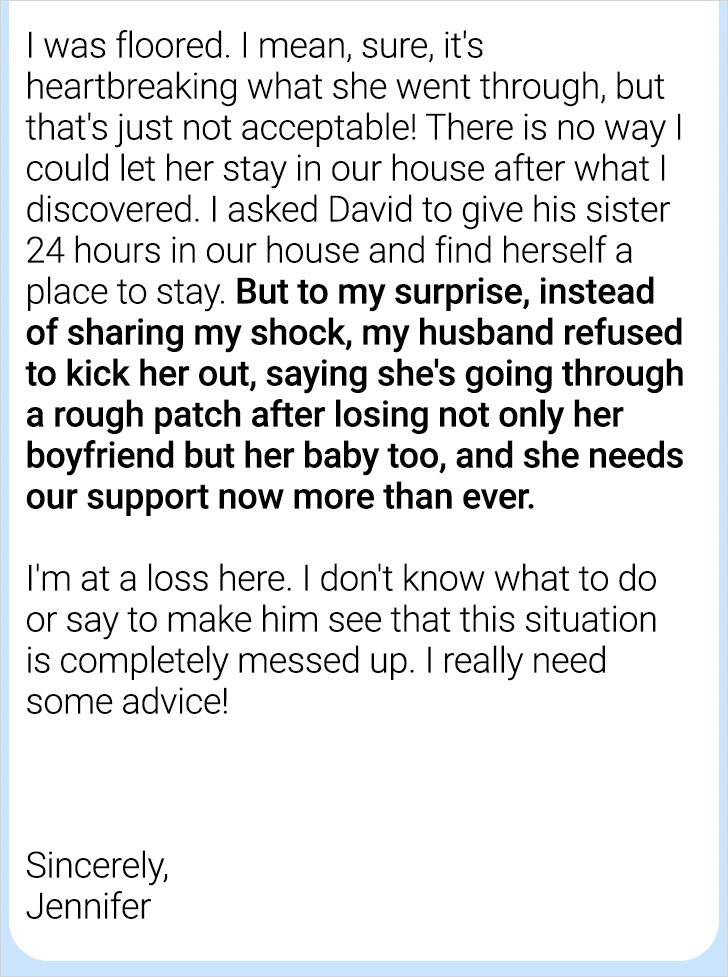Navigating tensions between a wife and her extended family is a frequent challenge in marriages. Finding a balance between being friendly with in-laws and ensuring one’s own happiness is crucial for keeping the family happy. Recently, a new mother discovered that her sister-in-law had been secretly getting involved in her household affairs, especially with her newborn baby, in the most unimaginable way. She reached out to Bright Side for help on how to handle this tricky situation.





Jennifer, we appreciate your trust in us regarding this critical matter. We have compiled five pieces of advice, hoping they will provide you with the support you need.
Communicate your boundaries clearly.

Sit down with David in a calm moment and express your feelings openly. Emphasize the importance of your discomfort with Diana’s actions, despite the sympathy you feel for her situation. Let him know that while you understand his desire to support his sister, your primary concern is the well-being and comfort of your baby. Establish clear boundaries about what is acceptable behavior in your home, especially concerning the care of your child.
Educate and empathize.
Approach the situation with empathy towards Diana’s grief and struggles, but also gently educate her about boundaries and consent. Help her understand that while her intentions may have been well-meaning, her actions crossed a line regarding your child’s care without your consent. Encourage her to seek professional help to process her emotions and find healthier coping mechanisms that don’t involve overstepping boundaries.
Explore alternative support systems.

While it’s admirable to want to support family members during tough times, it’s essential to prioritize the safety and comfort of your immediate family unit. Explore alternative support systems for Diana, such as connecting her with other resources like support groups, counseling services, or temporary housing options. Assure David that you’re not abandoning Diana, but rather redirecting her towards more appropriate avenues of support that won’t compromise your family’s well-being.
Revisit the decision together.
Remind David of the importance of mutual decision-making in your partnership and family life. Revisit the decision to allow Diana to stay in your home, considering all perspectives and concerns. Encourage open dialogue where both of you can express your feelings and concerns without judgment. Together, explore potential compromises or solutions that prioritize the well-being of everyone involved while upholding the integrity of your family unit.
Seek professional guidance.

Finally, given the complexity of the situation, you may consider seeking guidance from a family counselor or therapist. A neutral third party can help facilitate a constructive conversation between you, David, and Diana. They can provide insights into managing conflicting emotions, finding solutions that respect everyone’s needs, and establishing healthy boundaries within the family dynamic.
In another scenario, a woman found herself deeply distressed upon discovering her mother-in-law’s clandestine activities within her own home, captured by surveillance cameras.